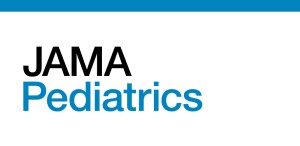Mild traumatic brain injury and criminal charges and convictions in mid and late adolescence
 Postdoc Ea Hoppe Blaabæk has published the article ‘Mild traumatic brain injury and criminal charges and convictions in mid and late adolescence’ in the journal JAMA Pediatrics.
Postdoc Ea Hoppe Blaabæk has published the article ‘Mild traumatic brain injury and criminal charges and convictions in mid and late adolescence’ in the journal JAMA Pediatrics.
The article is based on research funded by the ROCKWOOL Foundation/The Swedish Research Council for Health, Working Life and Welfare is written in collaboration with researchers from the ROCKWOOL Foundation, Stockholm University and University of Wisconsin-Madison.
The article investigates if there is a causal link between childhood histories of concussions (mild traumatic brain injuries/mTBI) and the affected children’s more frequent criminal justice involvement in mid to late adolescence and adulthood.
The study is a preregistered cohort study of all children born between 1995 and 2000 in Denmark and links emergency room visits and hospitalisations before age 10 to all criminal charges and convictions from age 15 to 20. To evaluate the association after controlling for family-level confounding, the study used sibling and twin fixed-effects models.
The researchers find a strong positive association between mTBI and criminal charges. However, when controlling for family-level confounding, the associations became statistically insignificant and, in most models, greatly reduced.
The study concludes that although mTBI in childhood is predictive of adolescent criminal justice involvement, there is no evidence that mTBI causes criminal charges or convictions. Policy makers aiming to decrease crime should therefore view childhood mTBI histories as predictive of rather than causally contributing to adolescent criminal behaviour.
In addition to Ea Hoppe Blaabæk, who works at both the Department of Sociology and the ROOKWOOL Foundation, Daniel Juhász Vigild, Felix Elwert, Peter Fallesen and Lars H. Andersen contributed to the article.
Read the full article (open access): Mild traumatic brain injury and criminal charges and convictions in mid and late adolescence
Science magazine presents and discusses the main findings of the study: Mild brain injuries don’t predispose kids to criminal behaviour, Danish study suggests
The new article follows an earlier article published in Social Science & Medicine, January 2024: From unequal injuries to unequal learning? Socioeconomic gradients in childhood concussions and the impact on children's academic performance-
